【新唐人2011年3月7日訊】“放慢經濟增長速度,提高增長品質”是大陸兩會要討論的“十二五”規劃綱要。但經濟學家認為,“國(企)進民(營)退”的趨勢如果不能得到扭轉,大陸持續發展將成為一句空話。
中國大陸經濟問題已成為政府和社會問題。德國《商報》認為,在中國,經濟財富的分配極不均衡。貧富懸殊分裂社會,尤其是在當前。
《路透社》報導,北京「天則經濟研究所」2號發佈報告說,中國存在結構性的“國進民退”現象,國企績效是在享受種種政策優惠,以及和民營企業在不平等的經營環境下所取得的。
美國耶魯大學金融學教授陳志武在《美國之音》的採訪中也表示:問題的根源就是政府在經濟中的力量過於龐大,而民營企業的力量過於弱小。
陳志武:“當政府擁有國家大部分資產的時候,中國經濟無論是過去還是在未來,都不得不嚴重依賴投資和出口就不難理解了。財富效應的主要受惠者自然是政府。相反,家庭消費因收入增長緩慢而無法快速增長。”
陳志武據中共官方的資料推算,政府和國企掌握的資產總額佔全國財富總額的3/4﹔家庭財富在GDP中所佔的比例,逐漸降低到最近的35%﹔政府的開支超過40%﹔現在每年的稅收收入,超過了相當於8億城市居民一年的可支配收入。
不僅如此,陳志武:“要比較中美經濟的增長速度,首先就應該把中國的增長資料除以二,因為中國家庭只能夠從工資增長這一個管道感受到經濟增長的好處。通過資產和土地升值來增加財富的管道,基本上被國企和政府封死了。”
“國進民退”之所以能夠在大陸持續發展,陳志武認為,是因為一黨專制,沒有制約政府和國企過度膨漲的力量:政府想加稅就加稅,想上甚麼項目就上甚麼專案,想整治私人企業就可以整治。
這位在美中兩國知名度很高的經濟學家認為,“國進民退”的趨勢如果不能夠徹底改變,即便是放慢了增長步伐,經濟增長的品質也難以提高,民眾也無法享受增長帶來的利益。
德媒認為,從西方的角度看,突尼斯、埃及和利比亞有關“穩定”與“自由”的價值之爭,也適用於中國。這也是北京的當權者日益恐懼和目前竭力防控的。
新唐人記者宋風、周平綜合報導。
Expansion of SOE Widens Gap between Rich and Poor
The theme of the 12th 5–year plan discussed on CCP』s
“two meetings” is “to slow down the economy growth
and to improve quality.”
Experts believe, if the expansion of state-owned firms
and shrinking of the private sector continue,
the sustainability of the economy will be empty talk.
China』s economic problems are now societal issues.
German newspaper Handelsblatt analyzes that
disparity in wealth distribution is extremely severe.
The gap between the rich and poor divides the society.
According to Reuters, a report by Beijing』s
Tianze Economic Institute found that China has
a structural problem, where state-owned businesses
enjoy favorable policies and competition advantages,
while the private sectors struggle.
Financial Professor Chen Zhiwu of Yale told VOA,
The root of the problem lies in the strong influence of
government in economy and a weak private sector.
Chen: As the government owns the majority of assets,
the economy relies on foreign investments and exports.
The beneficiary of the wealth effect is the government.
Meanwhile, family consumption will not increase rapidly
due to the slow income increase.”
Chen estimated, Chinese government and
state-owned firms own 75% of the state wealth.
Family wealth recently declined to 35% of GDP.
Government expenditure exceeded 40%.
The tax revenue exceeds the annual dispensable
income of 800 million urban residents in China.
Chen: Before comparing U.S. and China』s GDP growth,
we first should divide China』s figures by two.
Chinese families only benefit from salary increases.
To increase wealth through asset and land
appreciation are blocked by the state owned firms
and the government.
Chen believes, the situation of a strong public sector
and a weak private sector continues in China,
due to the one-party system, where there is no force
constraining the expansion of the government and
SOEs. The government can increase taxes,
initiate projects and punish private businesses at will.
This well-known economist thinks that
if the situation cannot be completely changed,
even though the economic growth is slowed down,
it is hard to improve the economy』s quality.
People won』t be able to benefit from the growth.
German media reported,
from the western point of view,
the struggle between “stability”and“freedom”
in Tunisia, Egypt and Libya also applies to China.
That』s what Beijing fears and tries its best to prevent.
NTD reporters Song Feng and Zhou Ping.
看下一集

【禁聞】兩會彈老調 人大成億萬富翁俱樂部

【禁言博客】強權統治為何難保千秋萬代

【禁言博客 】醫院也求「生意興隆」

【禁聞】溫家寶兩會提民生 老百姓自有解讀

【禁聞】“提案記者會”給紅包 民嘆兩會

【禁聞】中共砌高牆 網民反網控
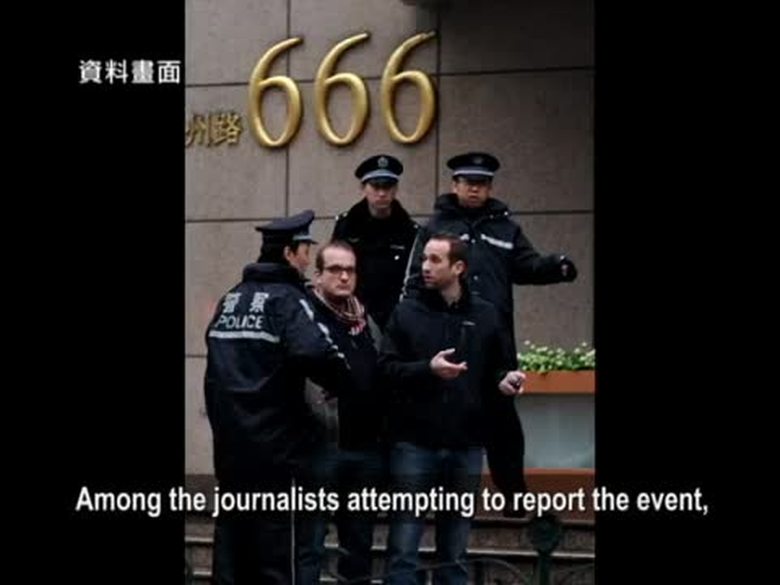
【禁聞】茉莉花三開 外國記者再成重點
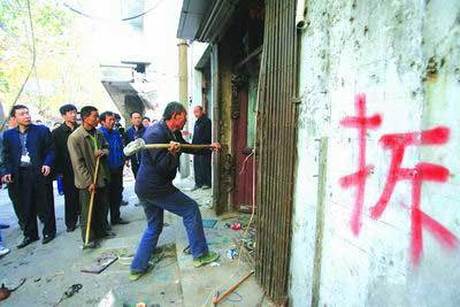
【禁聞】中國正變成一個黑社會國家?

【禁聞】茅於軾:別買房!20年後大量剩房
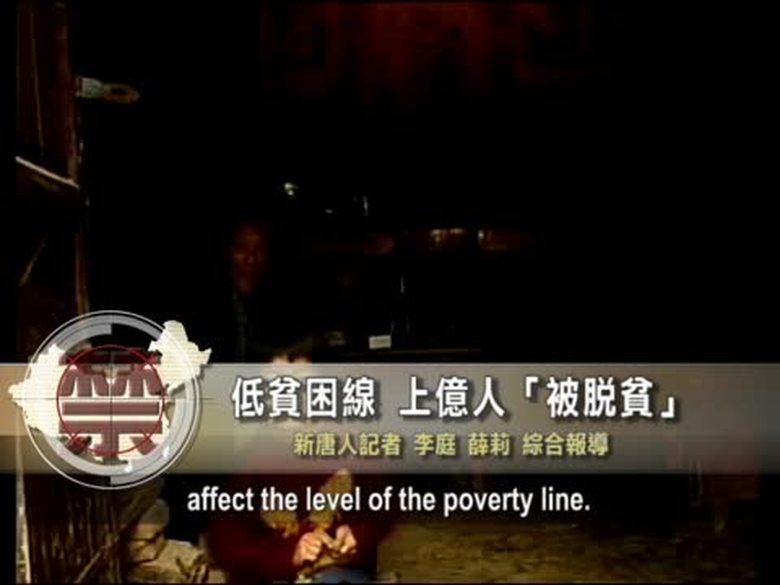
【禁聞】低貧困線 上億人「被脫貧」
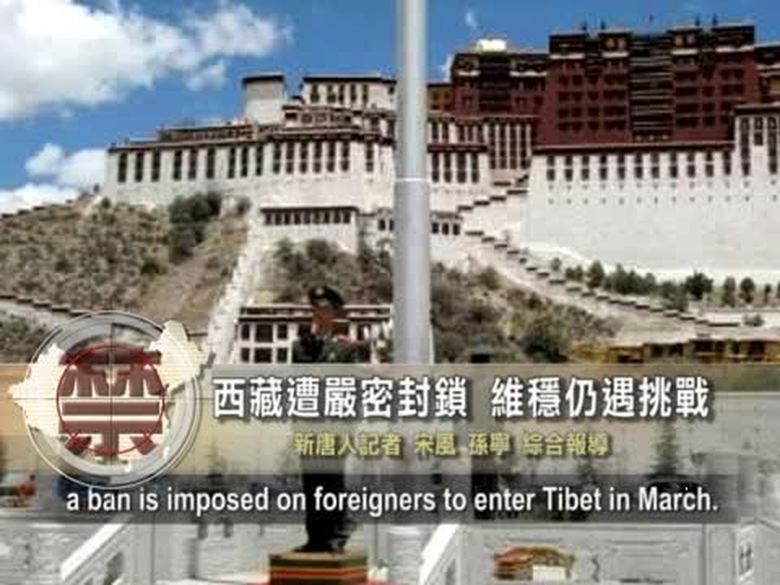
【禁聞】西藏遭嚴密封鎖 維穩仍遇挑戰
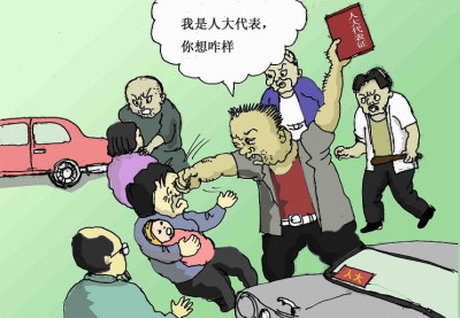
【禁聞】“中共人大代表”代表誰的利益?
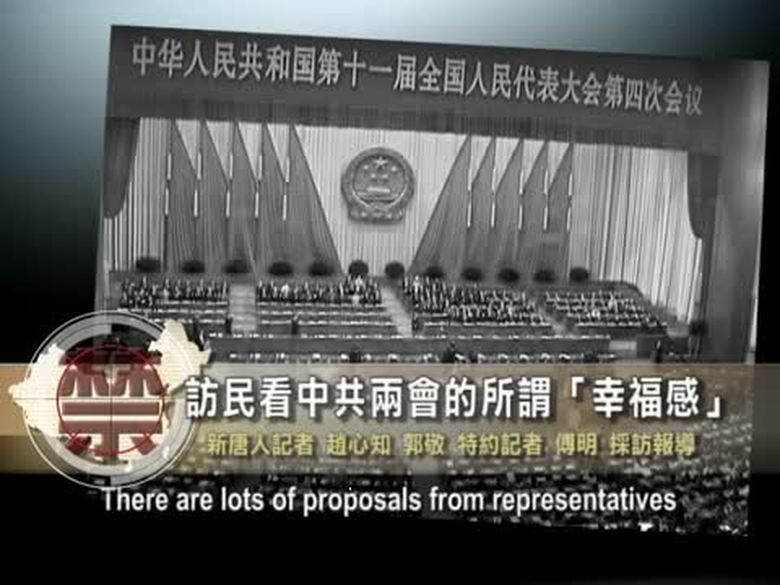
【禁聞】訪民看中共兩會的所謂“幸福感”

【禁聞】農村、貴族幼兒園 一國兩制?
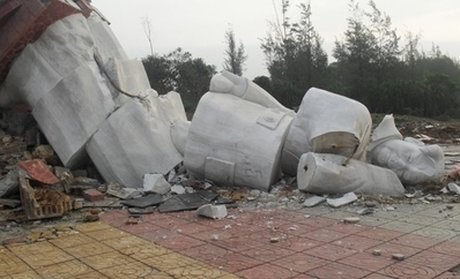
【禁聞】最給力拆遷!毛像被毀成五截

【禁聞】劉翔“裸會”引風波








